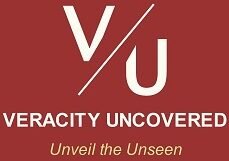- Home
- >>
- US
- >>
- Finance
- >>
- Investment
- >>
- CD
CD

Generally speaking, you commit to leaving your money in the CD for a “predetermined period” of time without taking any withdrawals. Early withdrawal of funds requires payment of a “penalty” to the bank. You are paid the amount you invested initially plus any “interest” when you cash in or redeem your CD.
The two main providers of CD are banks and credit unions. The “Federal Deposit Insurance Corporation” (FDIC) insures CDs provided by banks, while the “National Credit Union Administration” (NCUA) insures CDs offered by credit unions, up to a maximum of $250,000. Not every CD or account you have at the bank is covered by the $250,000 insurance; rather, it covers all your accounts “combinedly” at the same bank.
Use BankFind to confirm a bank’s FDIC insurance status or call the FDIC’s toll-free “Call Center” at 1-877-ASK-FDIC. FDIC, which has the full faith and credit of the US government behind it.
Also, CDs — which some credit unions issue — are called “share certificates.” For CDs and other deposit accounts at “state-chartered credit unions” and federal credit unions that apply for and fulfill the insurance conditions, the NCUA grants “share insurance,” which is comparable to deposit insurance.
The CD’s interest rate and whether it is variable or fixed should be disclosed in the “disclosure statement.” Both the maturity date and “any fines associated with early withdrawal of CD funds” should be made explicit. The disclosure should also include whether interest will be paid by check or “by an electronic cash transfer,” as well as how often the bank will pay interest on the CD — for example, monthly, quarterly or semi-annually.
Investing in CDs carries a small risk: over time, your real profits may decrease due to “inflation” outpacing your money growth. When looking for a CD, compare offers by examining “the interest rate you receive, the terms (i.e., the length of time you commit to keep your money in the CD), and the penalty for taking money out before the term expires.”
The interest rate on a bank certificate of deposit (CD) is usually higher than that of a standard “savings account.” Variable-rate CDs with predetermined schedules or linked to the performance of a basket of market indexes (bonds, foreign currency, or the S&P 500) are also available from certain banks. Variable-rate CD, also referred to as a “step up,” “multi-step,” or “bonus rate” CD. Interest is only paid on a number of market-linked CDs upon “maturity,” rather than on a quarterly, monthly, or other basis. Market-linked CDs are also known as “index-linked, equity-linked, and market participation” CDs.
There may also be higher rates on “callable CDs.” When a CD is callable, the bank or credit union has the option to “stop the deal” before it matures and repay your money plus any interest accrued up to that point. In general, banks/unions give higher rates on callable CDs than on other CDs because they come with the added risk that the bank/union may “call” or redeem the CD before its maturity date. You can be required to take your money out of your CD early or “reinvest it in a product that has a lower interest rate” if the bank or credit union decides to “call” it.
CD also named as “Investment Certificate” and “Time Certificate” by some providers.
Broker CD -
Many brokerage houses and “individual salesman” also provide CDs, even though the majority are bought straight from banks. If you buy a CD from salesperson/broker, you will have to “depend” on them to obtain the CD and make the deposit.
By pledging to deliver a specific number of deposits to the bank, these salespeople and organizations — referred to as “deposit brokers” — can occasionally negotiate a higher interest rate for a CD. These “brokered CDs” can then be made available to people/clients by the deposit broker.
Deposit brokers are “not authorized” by any state or federal government, nor are they certified or licensed. You won’t have FDIC insurance if the broker doesn’t deposit your money into a CD at a “bank” (covered by the FDIC). Deposit brokers are frequently associated with investment experts. Additionally, make sure you are buying a CD and “not a financial product that isn’t covered by the FDIC” by reading the account agreement and any other supporting papers.
Banks typically issue broker CDs through a “master CD” to the “deposit broker,” who then makes offer of interests in the master CD to individual consumers.
Unlike CDs bought straight from a bank, most CDs arranged through a broker do not include early “withdrawal penalties.” In a “secondary market,” you can usually sell brokered CDs at any time, depending on the state of the market. Still, some brokered CDs might not have a secondary market, depending on the “market state.” Because of this, you will have to retain the CD until it matures, is called (if at all possible), or the “market moves” in a way that allows a secondary market sale.
Get in touch with your state’s “consumer protection office” to learn more about deposit brokers who aren’t connected to any investing firms/agency.
FINRA and SEC web databases allow you to look up an investing professional’s “disciplinary history.” It is crucial to understand that “businesses” that are not banks are never covered by the FDIC.
FDIC Insurance -
Depositors do not have to apply for FDIC insurance; the insurance covers standard “deposit accounts.” Anytime a deposit account is opened with a bank or “other financial institution” that is FDIC insured, coverage is automatically provided.
For every insured bank, “each depositor” is covered up to a minimum of $250,000.
Deposit insurance provided by the FDIC covers “all kinds of deposits” held at a particular insured bank. This covers deposits made into a “savings account, certificate of deposit (CD), money market deposit account (MMDA), checking account, negotiable order of withdrawal (NOW) account,” or any ‘time deposit’ account. It also includes “official documents” like money orders and cashier’s checks that are issued by banks that are insured.
Do not forget that both the principal and interest are included in the $250,000 “insurance limit” through the date of the insured bank’s failure. To confirm that you are covered by deposit insurance, you can use the FDIC “Electronic Deposit Insurance Estimator” (EDIE).
You can speak with a “deposit insurance specialist” by calling the FDIC toll-free at 1-877-275-3342 if you have more than $250,000 on deposit (or on combined deposits) at a “bank” (affiliated with the FDIC). They will help you ensure how to cover you enough within “limits.”
Note: The FDIC does not “insure” every product that banks sell.
Even though they were bought at an insured bank, investments in “stocks, bonds, life insurance plans, mutual funds, cryptocurrency assets, annuities, and municipal securities” are not covered by the FDIC.
In the event that a member brokerage or bank brokerage subsidiary fails, the “Securities Investors Protection Corporation” (SIPC), a non-governmental organization, will replace any missing stocks and other assets in customer accounts owned by its members up to $500,000, including up to $250,000 in cash. The loss of value of a “specific investment” is not covered by SIPC insurance for investors.
Other Situations not Covered -
The FDIC does not protect the contents of a safe deposit box. To find out if there is any additional insurance, read the “contract” you signed with the bank. Depending on the situation, some banks may only pay a very “small amount” if the box or its contents are destroyed or lost.
Certain consumer protections regulations, such as the “Electronic Funds Transfer Act,” could assist you against unauthorized access to your funds/account.
A banker’s blanket bond, a multipurpose insurance policy a bank buys to protect itself against fire, earthquake, flood, embezzlement, robbery, and “other sources of disappearing cash.”
FDIC official page related to “CD”: https://www.fdic.gov/resources/consumers/consumer-news/2023-11.html
That’s all friends.
Suggestions or corrections for this page can be submitted from the “contact us” page.
Ads Section

